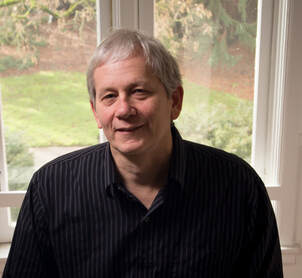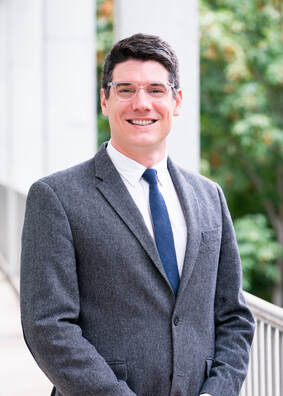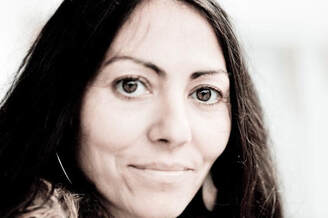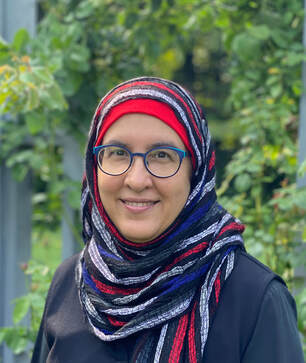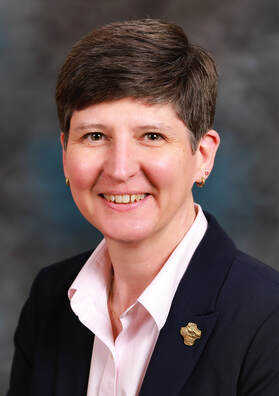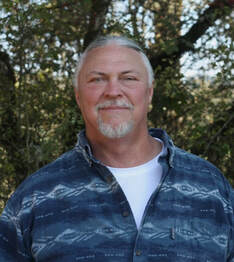Plenary Sessions and Speakers
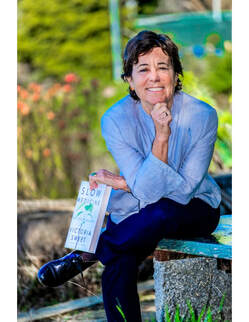
"On Not Making Space for the Sacred in Medicine"
Victoria Sweet, MD
Associate Clinical Professor of Medicine
University of California, San Francisco
Monday, March 14, Morning Session
In this talk Dr. Sweet will discuss her experience of the unmaking of sacred space in medicine. She initially chose her career in medicine as a path on which the sacred is ipso facto included as birth, death and suffering, and then watched as it, renamed "healthcare" discarded the burdens of the sacred, --thoughtfulness, consideration, connection-- in the interest of efficiency. Eventually she rediscovered the sacred in the medicine of Hildegard of Bingen and the work of Carl Jung, all while practicing in an atavistic hospital she calls GH---God's Hotel. And then she watched as GH itself morphed in the same way, from medicine to healthcare, from monastery to factory. Burnout is the inevitable result of this transformation because sacred space is as necessary for the doctor and nurse as it is for the patient.
Victoria Sweet is an Associate Clinical Professor of Medicine at the University of California, San Francisco, and a prize-winning historian with a Ph.D. in medical history. She practiced medicine for over twenty years at Laguna Honda Hospital in San Francisco. Her acclaimed book, God's Hotel: A Doctor, a Hospital, and a Pilgrimage to the Heart of Medicine (Riverhead, 2012), lays out her evidence—in stories of her patients and her hospital—for some new ideas about medicine and healthcare, to counter the emphasis on “efficiency” in control of health care costs. As a Guggenheim Fellow, she wrote her second book, Slow Medicine: The Way to Healing. Among other honors, Dr. Sweet was the recipient of the JP McGovern Award for Humanism in Medicine from Yale University in 2018.
Victoria Sweet, MD
Associate Clinical Professor of Medicine
University of California, San Francisco
Monday, March 14, Morning Session
In this talk Dr. Sweet will discuss her experience of the unmaking of sacred space in medicine. She initially chose her career in medicine as a path on which the sacred is ipso facto included as birth, death and suffering, and then watched as it, renamed "healthcare" discarded the burdens of the sacred, --thoughtfulness, consideration, connection-- in the interest of efficiency. Eventually she rediscovered the sacred in the medicine of Hildegard of Bingen and the work of Carl Jung, all while practicing in an atavistic hospital she calls GH---God's Hotel. And then she watched as GH itself morphed in the same way, from medicine to healthcare, from monastery to factory. Burnout is the inevitable result of this transformation because sacred space is as necessary for the doctor and nurse as it is for the patient.
Victoria Sweet is an Associate Clinical Professor of Medicine at the University of California, San Francisco, and a prize-winning historian with a Ph.D. in medical history. She practiced medicine for over twenty years at Laguna Honda Hospital in San Francisco. Her acclaimed book, God's Hotel: A Doctor, a Hospital, and a Pilgrimage to the Heart of Medicine (Riverhead, 2012), lays out her evidence—in stories of her patients and her hospital—for some new ideas about medicine and healthcare, to counter the emphasis on “efficiency” in control of health care costs. As a Guggenheim Fellow, she wrote her second book, Slow Medicine: The Way to Healing. Among other honors, Dr. Sweet was the recipient of the JP McGovern Award for Humanism in Medicine from Yale University in 2018.

"Will Tomorrow Know We Advanced Dignity?
Making the Practice of Dignity and Anti-Racism Central in Our Work and Lives"
Ben Danielson, MD
Clinical Professor
University of Washington
Monday, March 14, Afternoon Session
Dr. Danielson is clinical professor of Pediatrics at the University of Washington. For two decades he was the medical director at the Odessa Brown Children’s Clinic which serves mostly low income families in an historically Black community. He resigned in late 2020 in protest of racism and related dysfunctions at the clinic’s overseeing entity: Seattle Children’s Hospital.
He also serves on various boards of health related organizations, philanthropic organizations, and community groups dedicated to health issues. He chairs the Governor’s Interagency Council on Health Disparities, co-chaired the Governor’s Task Force on creating an Office of Equity, chairs the Group Health Foundation Board, and is a board member on King County’s Children and Youth Advisory Board. He has been active in the public health and healthcare governance realm.
The unifying thread in Dr. Danielson’s activities relates to promoting well-being and dignity, especially for communities who have been pushed aside. He has found opportunities within and outside of systems to advocate in partnership with groups and individuals who are dedicated and passionate about creating a better world. He realizes he is often the least useful member of the circles he joins and he is inspired - every day - by the children, families, communities and organizations with whom he interacts.
Making the Practice of Dignity and Anti-Racism Central in Our Work and Lives"
Ben Danielson, MD
Clinical Professor
University of Washington
Monday, March 14, Afternoon Session
Dr. Danielson is clinical professor of Pediatrics at the University of Washington. For two decades he was the medical director at the Odessa Brown Children’s Clinic which serves mostly low income families in an historically Black community. He resigned in late 2020 in protest of racism and related dysfunctions at the clinic’s overseeing entity: Seattle Children’s Hospital.
He also serves on various boards of health related organizations, philanthropic organizations, and community groups dedicated to health issues. He chairs the Governor’s Interagency Council on Health Disparities, co-chaired the Governor’s Task Force on creating an Office of Equity, chairs the Group Health Foundation Board, and is a board member on King County’s Children and Youth Advisory Board. He has been active in the public health and healthcare governance realm.
The unifying thread in Dr. Danielson’s activities relates to promoting well-being and dignity, especially for communities who have been pushed aside. He has found opportunities within and outside of systems to advocate in partnership with groups and individuals who are dedicated and passionate about creating a better world. He realizes he is often the least useful member of the circles he joins and he is inspired - every day - by the children, families, communities and organizations with whom he interacts.
|
"Love Your Patient As Yourself"
An Interfaith Panel Discussion -- Reviving Patient-Clinician Relationships Tuesday, March 15, Morning Session The central relationship of medical care is manifested when the well-being of the clinician and patient are joined in the mutual project of flourishing. Drawing on personal experience as a pediatric palliative care physician, and the philosophical work of Iris Murdoch, Simone Weil and Augustine of Hippo, Tyler Tate, M.D., will describe a practical ethical approach grounded in a conception of neighbor love-- specifically, the virtue of love understood as attention to a sufferer's humanity. Here the sufferer's needs enter the sphere of the caregiver's self-concern and happiness and join them in a unique form of reciprocity and friendship. By reimagining the patient-clinician relationship as a loving relationship -- with all the complexities, conceptual baggage, and partiality that the concept "love" may entail -- the stage is set for a medical ethic that contains within itself the resources to resist the fear, dehumanization, and mistrust that proliferates in many healthcare settings today. Panelists representing different faith traditions will respond with their own reflections. Moderator: Courtney S. Campbell, PhD, is the Hundere Professor of Religion and Culture at Oregon State University. Campbell's two most two most recent book publication are Bearing Witness: Religious Meanings in Bioethics and Mormonism, Medicine, and Bioethics. Presenter: Tyler Tate, MD, MA is an Assistant Professor of Pediatrics, Division of Palliative Care, and Associate Director of the Center for Ethics in Health Care at Oregon Health and Science University. He received his medical degree from the University of Alabama, did his residency in pediatrics and MA in Bioethics at the University of Washington, and did a fellowship in palliative care at Duke University. His research lies at the intersection of philosophy, religion, literature, and medical practice. He is the director of the Oregon Bioethics and Humanities Colloquium. Panelists: Vitalia Brooks, MDiv, holds a BA in Anthropology and Religious Studies from the University of Oregon, and completed her Masters of Divinity (MDiv) and Master of Arts (MA) in Indo-Tibetan Buddhist Studies under the guidance of Dzogchen Ponlop Rinpoche from Naropa University in 2007. At present, Vitalia is a clinical chaplain, bereavement coordinator, grief counselor, adjunct professor at Maitripa College, and has spent 15 years serving as a hospital and hospice chaplain. She also has had the privilege to serve as a university chaplain as well as resettlement specialist for the refugee community. Allison Kestenbaum, BCC-PCHAC, ACPE, is the Supervisor of Spiritual Care Services and the CPE program supervisor at UC San Diego Health. She also serves as a palliative care chaplain for the Howell Palliative Care Service at UCSD. She served as Director of Programs at the Jewish Theological Seminary Center for Pastoral Education and completed her training at UC San Francisco and Mount Sinai Health System. She is an ACPE Certified Educator and a Certified Chaplain through Neshama: Association of Jewish Chaplains (NAJC) and holds advanced certification in hospice and palliative care through Association for Professional Chaplains (APC). She is a Cambia Health Foundation Sojourns Scholar. Asma Mobin-Uddin, MD, is an Assistant Professor of Bioethics in the Division of Bioethics at The Ohio State University College of Medicine. She is the director of the Clinical Bioethics Consultation Service at The Ohio State University’s Wexner Medical Center and The Ohio State University Center for Bioethics. She is also an Assistant Professor of Pediatrics at Nationwide Children’s Hospital. Dr. Mobin-Uddin is the award-winning author of three children’s books about the Muslim-American experience. Her book, My Name is Bilal, was recently featured on CNN and in The New York Times as an educational resource to combat discrimination and foster activism. Her op-ed columns on faith-based topics have been widely published. Micki Varner, MDiv, is the Director of Mission Services for PeaceHealth’s Oregon Network. She is a Board Certified Chaplain with the Association of Professional Chaplains and an ordained minister in the United Church of Christ. She received her BA in History and MA in Technical & Scientific Communication from James Madison University and her MDiv from Episcopal Divinity School. Micki’s curiosity about the ways people find and express meaning in community through story and ritual informs her practice of ministry and her approach to end-of-life care. Rev. Dr. Randy Woodley, PhD, is recognized as a Cherokee descendent by the United Keetoowah Band of Cherokee Indians. He is a teacher, poet, activist, former pastor, missiologist and historian. Woodley received his baccalaureate degree from Rockmont College in Denver. He was ordained to the ministry through the American Baptist Churches in the USA in Oklahoma after graduating with a Masters of Divinity degree from Eastern Seminary (now Palmer Seminary) in Philadelphia. Randy's PhD is in intercultural studies from Asbury Seminary in Wilmore, Kentucky. He and his wife Edith are cofounders of Eloheh Indigenous Center for Earth Justice and Eloheh Farm and Seeds, and early innovators in the “Native American Contextual Movement.” |

